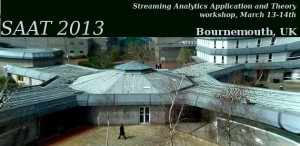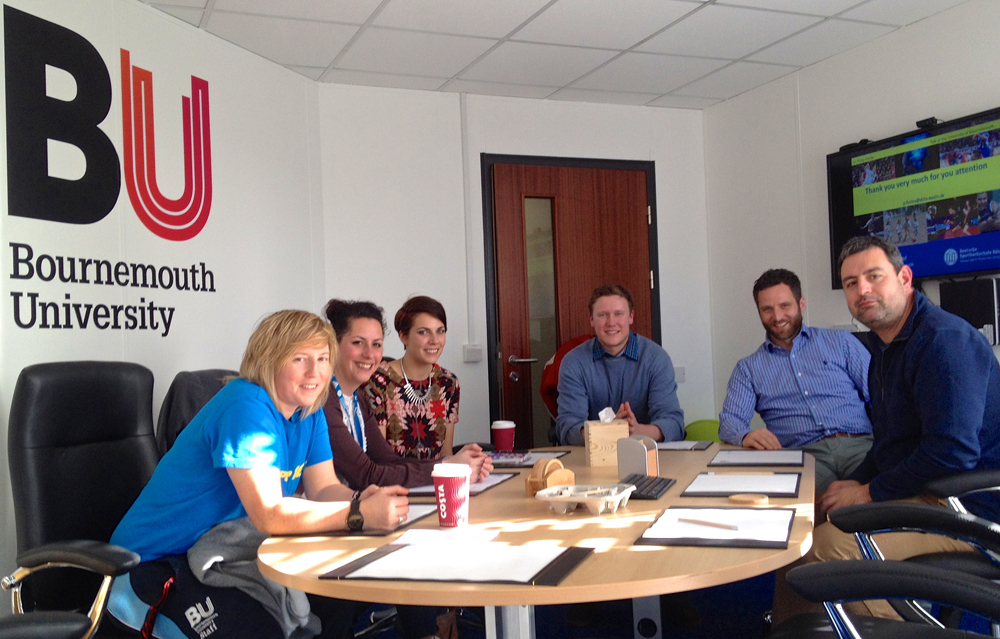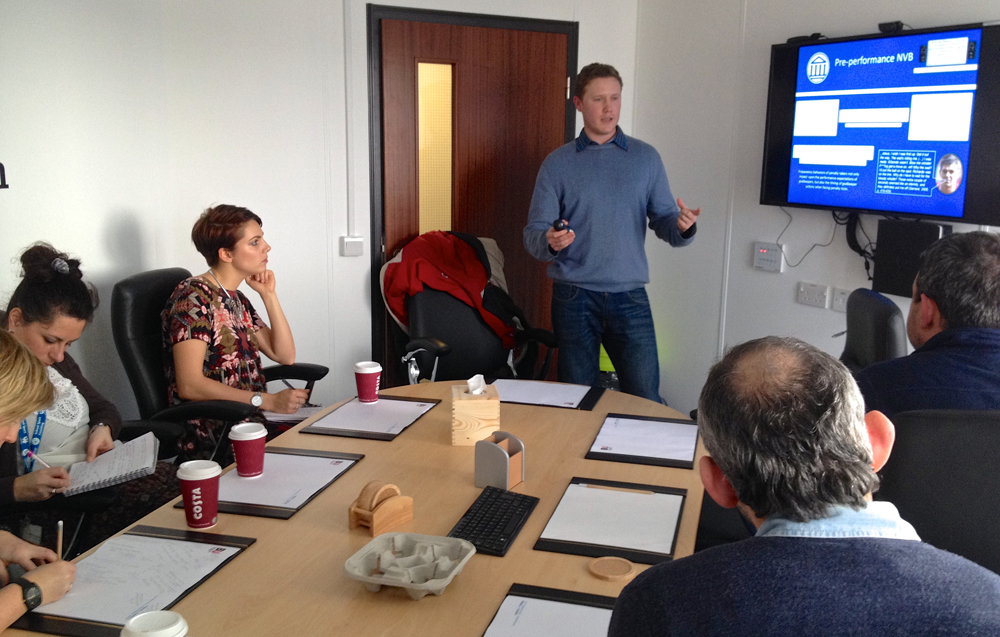“At the heart of the BU2018 strategy is the powerful fusion of research, education and professional practice, creating a unique academic experience where the sum is greater than the component parts”.
SDRC has been actively engaged with the BU Fusion initiative through various methods i.e. Fusion fund, Festival of Learning, Fusion conferences, international collaborations, chairing international conferences, keynote & invited guest speaking, journal reviews & editorship, funding councils review panels, visiting professors from international HE, engaging with regional industry & community stakeholders and research informed education.
Some examples of research informed education & linkages between the two academic activities are provided briefly.
Design Engineering Level – C
Unit: Design Methods & Projects (40 credit)
Dr Zulfiqar Khan is leading this significant unit within the Design & Engineering framework in the Faculty of Science & Technology. This unit has four projects. Final project (project 4, 50% of the course work) is linked to The Tank Museum. An educational trip to the museum is part of the course work, an additional visit (complimentary free entry for the day), which involves access/study to/in archives and study of engineering systems & components within design & engineering context. This project is linked to the PhD research projects with the Tank Museum [Zulfiqar Khan lead] and current collaborative research project with the Defence Science & Technology Laboratory (DSTL) Ministry of Defence [Zulfiqar Khan lead]. Topics in these projects are related to the Sustainable Design Research Centre areas of Corrosion, Contact Mechanics and Tribology.
Design Engineering Level – H
Unit: Advanced Technology & innovation (40 credit)
Dr Zulfiqar Khan is leading this core unit within the Design & Engineering framework in the Faculty of Science & Technology. The students submit a research paper (50% of the coursework) in the second semester. Students have the opportunity to get involved with the existing PhD programmes within SDRC [mainly led by Zulfiqar Khan] or engage in new mini research projects. Students are involved with the Sustainable Design Research Centre research themes in Renewable Technology, Corrosion, Tribology & Sustainable Design. Students published 2 x journal and 1 x Conference papers in AY 2012-13. Students have published 1 x journal paper this year. 2 x journal & 1 x conference papers are submitted in AY 2013-14 and are currently under review.
Design Engineering Level – I & H
Unit: Design Projects (40 credit) and Final Design Projects (60 credit)
Zulfiqar is QS for level I and supervised the following level H projects. Students in both levels were involved in the Sustainable Design Research Centre Renewable Technology theme in collaboration with community led Poole Tidal Energy Partnership [ZK one of the founding directors] projects in Tidal Energy. Final year projects in Tidal Turbine and Heat Pump were showcased in the BU Festival of Design & innovation (FoDI) 2011-2012. Level I students were set projects to design non-rotating tidal turbines and students presented their work to the community stakeholders in renewable technology.
Product Design Level – H
Unit: Design Projects 3 (60 Credits)
A retro-fitted horizontal axis wind turbine (HAWT) was designed & a functional prototype was developed by a final year student [ZK supervised]. Student participated and presented his work in the BU Renewable Technology Public Engagement (Question Time) Event as part of the BU Festival of Learning 2013 organised by SDRC [ZK and Mark Hadfield].
MEng Level – I
Unit: Thermo-fluids & Heat Transfer (20 credit)
Zulfiqar Khan contributed to the development of this unit and has been leading as unit leader. Two research projects in Solar-thermal technologies (thermal conductivity and thermal expansion) are fully funded by Energy Company [ZK lead] within Sustainable Design Research Centre. This research is supported by off campus experimental and simulation labs at the industrial unit [ZK lead]. A lab has been developed at BU to fully link the newly developed unit through its fundamentals to the current researches in thermo-fluids, heat transfer (thermal conductivity, thermal convection) and fluids (Bernoulli’s, Frictional flow, Fluid properties) linking research in Solar-Thermal technologies. MEng level I students have been performing experiments in fluid properties and heat transfer which are directly linked with the researches within SDRC.
Students’ lead published papers
- Nugent, M., Khan, Z. (2014). The effects of corrosion rate and manufacturing in the prevention of stress corrosion cracking on structural members of steel bridges. The Journal of Corrosion Science and Engineering JCSE, 17(16). Retrieved from http://www.jcse.org/
- Wilton-Smith, K., Khan, Z., Saeed, A., & Hadfield, M. (2013). Accelerated Corrosion tests of Waste-gated Turbocharger’s Adjustable and Fixed End Links. In 11th International Conference on Surface Effects and Contact Mechanics. Siena, Italy: Wessex Institute of Technology, UK. Retrieved from http://www.wessex.ac.uk/13-conferences/contact-and-surface-2013.html
- Dobson, P., & Khan, Z. (2013). Design considerations for carbon steel pipes materials’ selection applied in fossil powered plants subjected to wet-steam flow accelerated- corrosion review paper. Journal of Corrosion Science and Engineering, 16, 1-13. Retrieved from http://www.scopus.com/source/sourceInfo.url?sourceId=12326&origin=recordpage
- Denham, L., & Khan, Z. (2013). The prevention of corrosion and corrosion
stress cracking on structural members of
fixed deep sea oil rigs. The Journal of Corrosion Science and Engineering, 16, 1-13. Retrieved from http://www.jcse.org/
If you have interests in BU Fusion, Research informed education and or SDRC research activities and would like further information then please contact
Dr Zulfiqar Khan (Associate Professor)
Director SDRC
 Dash7 for remote patient monitoring via mobile phone
Dash7 for remote patient monitoring via mobile phone






























 Exploring Embodied Research: Body Map Storytelling Workshop & Research Seminar
Exploring Embodied Research: Body Map Storytelling Workshop & Research Seminar Marking a Milestone: The Swash Channel Wreck Book Launch
Marking a Milestone: The Swash Channel Wreck Book Launch No access to BRIAN 5-6th February
No access to BRIAN 5-6th February ECR Funding Open Call: Research Culture & Community Grant – Apply now
ECR Funding Open Call: Research Culture & Community Grant – Apply now MSCA Postdoctoral Fellowships 2025 Call
MSCA Postdoctoral Fellowships 2025 Call ERC Advanced Grant 2025 Webinar
ERC Advanced Grant 2025 Webinar Update on UKRO services
Update on UKRO services European research project exploring use of ‘virtual twins’ to better manage metabolic associated fatty liver disease
European research project exploring use of ‘virtual twins’ to better manage metabolic associated fatty liver disease